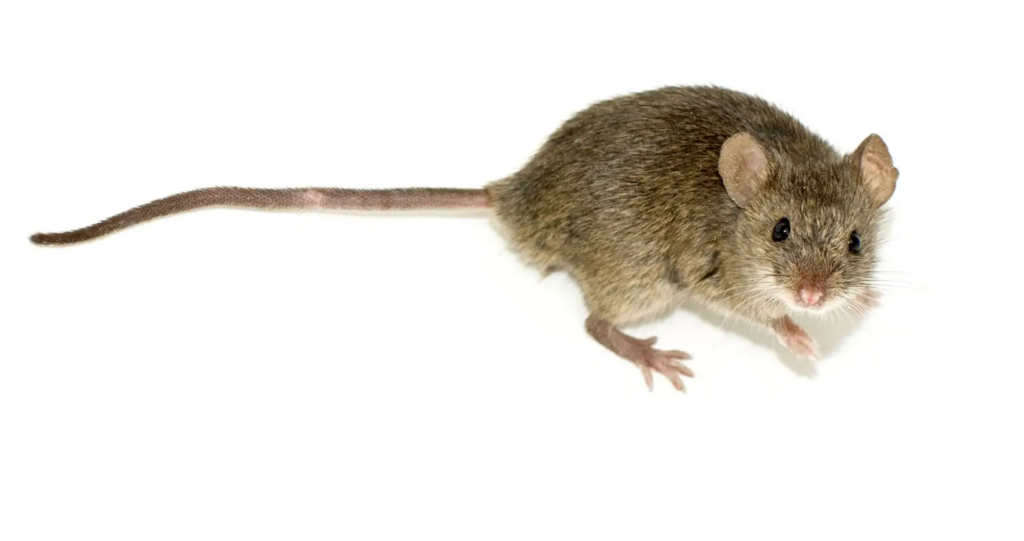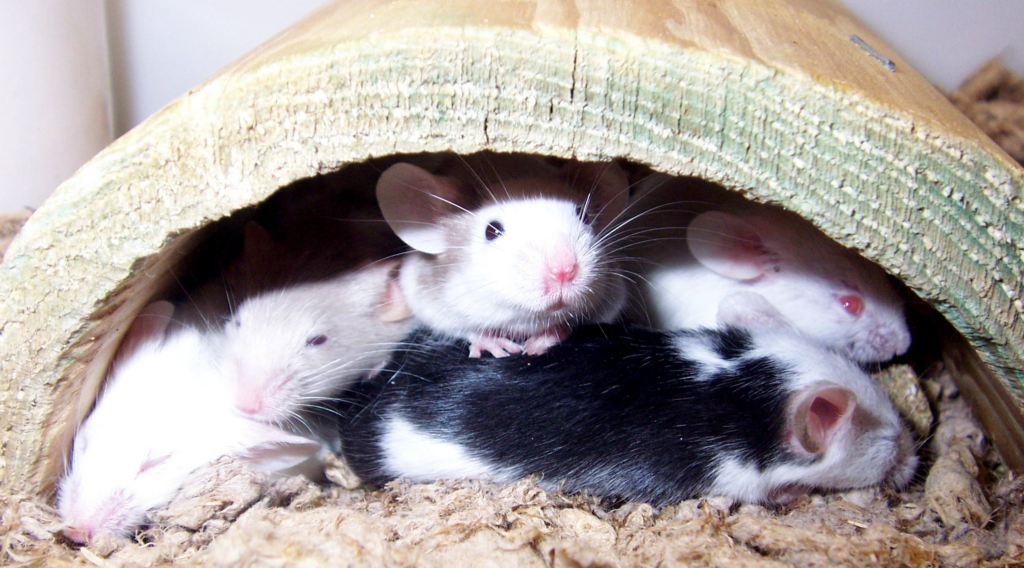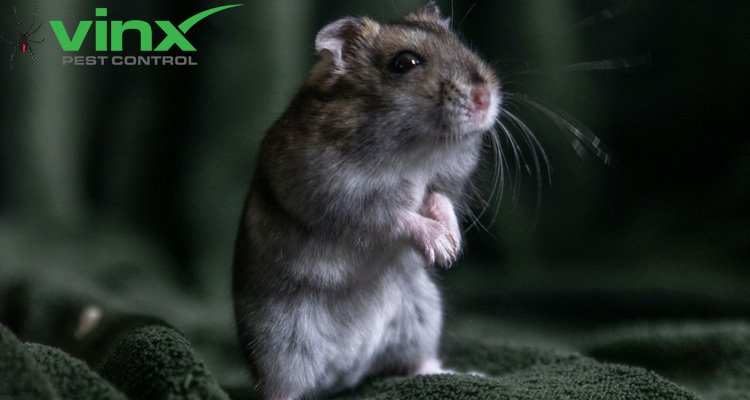Mouse droppings are small, dark pellets that can signal a rodent problem in your home. These mouse droppings are about 3/16 inch long and 1/16 inch wide. They look like tiny grains of rice.
Fresh droppings are dark brown or black. Older ones may turn gray. Their pointed ends and uniform shape make them easy to spot.
At Vinx Pest Control, we tell homeowners to check places like kitchen cabinets and pantries for these signs. Also, look in corners.
Key Takeaways
- Mouse droppings are 3/16 inch long with sharp ends.
- Color ranges from dark brown (fresh) to gray (aged).
- Size and shape differ from other rodent feces.
- Common locations include food storage areas and hidden corners.
- Vinx Pest Control helps identify infestations through these signs.
Understanding Mouse Droppings
Knowing how to spot mouse droppings is important. It helps stop pests early. At Vinx Pest Control, we teach how to keep homes safe.

Common Characteristics
Mouse droppings are ¼ to ½ inch long. They are dark brown when new and have a rod-like shape. They turn grayish as they get older.
These signs are easy to spot. Looking for them often stops infestations early.
Variations in Appearance
Changes in size and color are important clues. Older droppings crumble and rat droppings are bigger. Cleaning tips from Vinx help you handle them safely.
Don’t sweep, as it spreads allergens. Different shapes or sizes mean different pests. Spotting these early prevents health issues and damage.
Health and Safety Risks of Rodent Feces
Rodent droppings are more than just a mess. They can cause serious health problems. Keeping things clean is key to avoiding these dangers.
Infections and Diseases
Mouse droppings can spread diseases like Hantavirus, Salmonellosis, and Leptospirosis. These diseases can make you very sick. They spread through touching, breathing in, or touching contaminated things.
Symptoms can be mild or very serious. It’s important to act fast to stay safe.

Allergy and Asthma Concerns
Being around rodent waste can make allergies and asthma worse. The tiny particles in dust can make it hard to breathe. If places are not clean, these problems can get even worse.
Wear gloves, masks, and clean areas well. Homeowners should focus on keeping things clean to get rid of allergens and germs. If it’s really bad, call a pro. Vinx Pest Control can help make sure everything is safe and meets health standards.
Identifying Mouse Droppings in Your Home
Finding mouse droppings early stops infestations. These small, rice-sized pellets show up in clusters near food, walls, or hidden spots like attics. Quick action cuts down health risks and damage. If you’re unsure, our team at Vinx Pest Control can help.
Signs of Infestation
Mouse droppings aren’t the only clue. Look for tiny footprints in dust, grease stains on walls, or shredded materials for nests. If you hear scratching at night, it might be mice. Droppings near pet food or kitchen cabinets mean they’re active. Call us right away to stop them from spreading.

Spotting Rodent Droppings vs. Other Debris
Mouse droppings are 1/4 inch long, dark, and pointed at both ends. Roach droppings look like tiny black specks, while rat droppings are bigger and capsule-shaped. Not knowing the difference can lead to bad cleanup. Vinx experts can tell pests apart for the right cleanup.
Confusing rodent waste with other debris slows down fixing the problem. Our team checks hard-to-reach spots and gives advice. If you see droppings, don’t try to clean them yourself. Vinx’s safe methods include professional removal and home care tips. Let us safely get rid of the problem and lower future risks.
Effective Cleaning Tips for Pest Infestations
When you find mouse droppings, cleaning up right away is key to stay healthy. Wear gloves and a mask to protect yourself. Don’t sweep or vacuum, as it can spread harmful particles in the air.
Use paper towels to dampen the droppings with disinfectant spray instead. This helps avoid spreading disease-carrying dust from rodents.
After cleaning up the waste, disinfect surfaces with EPA-approved cleaners. Focus on places like kitchen cabinets, basements, and storage spaces. These are common spots for rodents.
Also, make sure to seal trash well and keep food storage areas clean. Regular checks for cracks or gaps can help keep rodents out.
At Vinx Pest Control, we suggest cleaning well and keeping up with home maintenance. This combo reduces health risks and keeps pests away. Our team uses special tools to remove rodent signs and gives advice on how to prevent future problems.
Preventive Measures and Home Maintenance
To keep your home rodent-free, start with proactive steps. Seal gaps around windows, doors, and pipes to block mice entry. Our experts suggest checking walls, foundations, and utility lines often.
Use steel wool or mesh to seal small cracks. Mice can fit through tiny spaces. Professional pest control services, like Vinx Pest Control, can find hidden spots homeowners miss.
Sealing Entry Points
Stopping infestations starts with blocking access. Look for cracks in walls, gaps under doors, or worn weatherstripping. Use metal mesh or caulk for gaps bigger than a quarter-inch.
Regular checks keep these barriers strong. At Vinx Pest Control, we focus on sealing weak spots to stop future invasions.

Regular Sanitation Practices
Keep your home clean to reduce pest attraction. Store food in airtight containers and sweep crumbs daily. Dispose of trash in sealed bins.
Avoid leaving pet food out and fix leaky pipes to remove moisture. Poor sanitation draws pests. Our team recommends monthly deep-cleaning to reach areas like basements and attics.
Professional Pest Control Services by Vinx Pest Control
Dealing with mouse infestations is more than just cleaning. At Vinx Pest Control, we use science and skill to get rid of pests. We start by looking at mouse feces and finding where they are.
Our Approach to Extermination
We first check your place for mouse droppings. This tells us what kind of mouse and how many there are. Then, we make a plan to get rid of nests and block their way back in.
We make sure our methods are safe for families and pets. This is very important to us.
Expert Clean-up Procedures
After we get rid of the pests, we clean with special tools and safe solutions. Our team wears protective clothes and gets rid of any bad stuff safely. This makes sure all mouse feces and dangers are gone.
Many people miss mouse droppings or don’t know how bad it is. Our certified team finds and cleans every spot, no matter how hard to reach. This keeps your home safe from mice. If you are interested in services read this article to understand more of what you need to do beforehand.
DO YOU HAVE TO LEAVE THE HOUSE FOR PEST CONTROL?
Understanding the Impact of Sanitation and Rodent Infestation
Not keeping your place clean can attract rodents. This is bad for your health and home safety. If you ignore rodent droppings, you face ongoing dangers.
Consequences of Poor Sanitation
Dirty homes draw rodents, leading to harmful droppings. These droppings can hide in spots, spreading sickness and allergies. If you ignore this, your home might get damaged and infested again.
Long-term Home Maintenance Strategies
Keeping your home clean and using prevention methods is key. Regular checks, proper trash disposal, and sealing holes help keep rodents out. Working with experts like Vinx Pest Control helps a lot.
They ensure a deep clean and create plans to stop future problems. Staying on top of this helps keep your home safe and your family healthy. It also saves you from expensive fixes later on.

How to Recognize Severe Pest Infestation Signs
Seeing mouse droppings in one spot might mean a small problem. But finding them everywhere is a big warning. Look for lots of droppings in places like kitchens and storage.
Also, watch for chewed-up things like wiring or food packaging. Hearing strange noises at night or smelling a musky smell in rooms is another sign. These signs mean you need help.
When you see mouse droppings, don’t touch them. Use protective gear and clean with disinfectants. But if you see them everywhere or they come back, you need a pro.
At Vinx Pest Control, we find and fix pest problems. We make sure your home is safe and clean. If you see these signs, call us fast. We’ll stop the problem and keep you safe.
Conclusion
It takes a real rodent removal expert to eliminate mice permanently and prevent future infestations. If you are ready to be rodent-free, call Vinx Pest Control. Our trained technicians will come out and assess your property to see just how much rodent exclusion it will take to make your home mouse-proof. Give us a call today for your free quote. We have locations in Dallas, Charleston, and Greenville. If you live in the Dallas area, we serve the entire area including Mesquite, Allen, and Rowlett.



